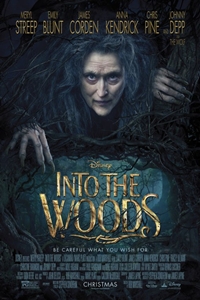 Into the Woods
Into the Woods
Starring Anna Kendrick, Meryl Streep, Chris Pine, Emily Blunt, James Corden, Lilla Crawford, and Johnny Depp
Directed by Rob Marshall
Rated PG
Run Time: 124 minutes
Genre: Musical/Fantasy
Opens December 25th
By Eric Forthun of Cinematic Shadows
Into the Woods throws audiences into its fairy tale musical landscape immediately, starting with multiple numbers introducing characters, backstory, and practically any motivation needed for the story moving forward. Maybe that's why Rob Marshall's latest foray into cinematic adaptations of Broadway musicals left me a little underwhelmed and unsatisfied. Stephen Sondheim's music is undeniably self-aware and well-orchestrated, yet it remains difficult after viewing to distinguish between any of the songs outside of the title tune. Scene stealers arise in Meryl Streep's turn as The Witch and Chris Pine's hilariously turned-on-his-head Prince Charming, but the rest of the cast feels mostly there as a service to the story rather than having their own weight. For every positive thing that seems to emerge from the film, Into the Woods counters itself with an obvious message or unnecessary subplot. That makes for a tonally strange, oddly paced, but serviceable musical for all ages.
The story is a twist on many of the Brothers Grimm's fairy tales, with Cinderella (Anna Kendrick), Prince Charming (Chris Pine), Little Red Riding Hood (Lilla Crawford), Rapunzel (Mackenzie Mauzy), Jack (Daniel Huttlestone), The Wolf (Johnny Depp), and The Witch (Meryl Streep) all earning their own screen time. But the story mainly hinges on the tale of the Baker (James Corden) and his wife (Emily Blunt), who have failed to produce a baby that they so badly desire. They find out that the Witch put a curse on their living space long ago when the Baker's father lived there that stops the couple living there from producing a child. So in order to reverse the curse and provide themselves a happy future, they must collect four items: Cinderella's shoe, Rapunzel's hair, Jack's horse, and Red Riding Hood's cape. Along the way, the story meshes together all of these fairy tales by providing them with mostly familiar stories albeit with crossovers abounding.
There are a few great moments within the film: a musical number with Prince Charming and his brother (Billy Magnussen) that plays as a subversive commentary on male identity in princess films; a musical number that comes right before the film's conclusion that packs an emotional wallop on all fronts; and virtually any scene with Meryl Streep. Her role is heaped in humor and tragedy, a perfect mix for the everlastingly talented actress. The rest of the film, however, is interchangeable and feels unnecessary in the grand scheme of things. One of the most painful moments in the film is a false ending that comes with about 45 minutes left; the film feels mostly complete with its stories, but of course there is still plenty of running time. That grinds the narrative to a complete halt and drags out the conclusion far too long. Another thing that felt strange was the use of the Wolf, who essentially becomes a pedophile in this child-heavy landscape; was that message overt in the original story? It feels strange in a Disney world, regardless of its origin.
Yet none of those narrative elements are, for the most part, the main reason people will see Into the Woods. The film delivers satisfying, well-choreographed musical numbers that remain faithful to both the musical and memories of these fairy tales. For adults, there's subversion every step of the way; practically every scene in the first hour takes a riff on previously established notions of masculinity and femininity. That makes much of the musical delightfully refreshing and wholly unique. Yet my problem lies with much of Disney's repertoire lately. There's never a sense of genuine conflict for these characters because there's no sense of what will happen to them if evil wins, or even what that evil is. The conflict for much of the story seems protagonist-created, rather than emerging from an outside force, which makes for a strange dichotomy. Maybe that's intentional. Nonetheless, Rob Marshall has improved over his last few misfires and uses the help of a capable cast to make Into the Woods an inconsistently entertaining musical.

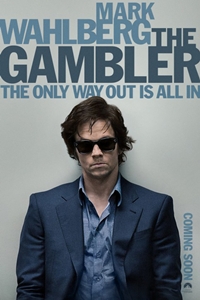 The Gambler
The Gambler
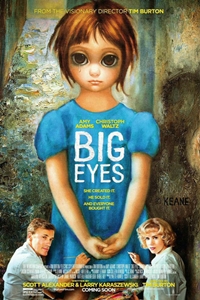 Big Eyes
Big Eyes
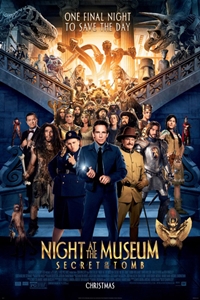 Night at the Museum: Secret of the Tomb
Night at the Museum: Secret of the Tomb
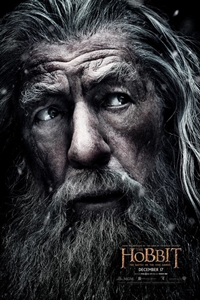 The Hobbit: The Battle of Five Armies
The Hobbit: The Battle of Five Armies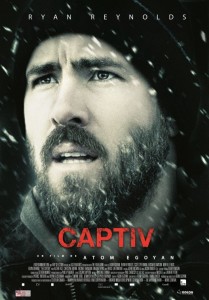 The Captive
The Captive
 Exodus: Gods and Kings
Exodus: Gods and Kings
 Top Five
Top Five
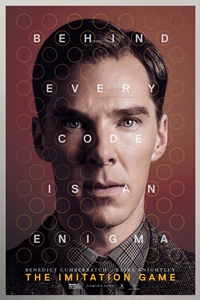 The Imitation Game
The Imitation Game
 Foxcatcher
Foxcatcher
 Wild
Wild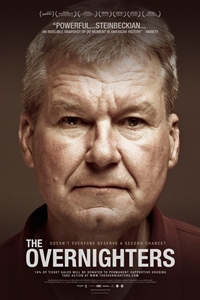 The Overnighters
The Overnighters
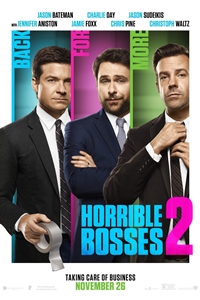 Horrible Bosses 2
Horrible Bosses 2
 The Hunger Games: Mockingjay — Part 1
The Hunger Games: Mockingjay — Part 1
 The Theory of Everything
The Theory of Everything








